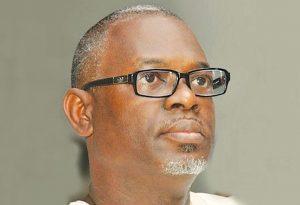By Wole Akinyosoye
“I have never met Mr. Awolowo”. That was how Ms. Margery Perham opened her foreword in Path to Nigerian Freedom, the book the young Obafemi Awolowo wrote in 1946, the same year he qualified as a lawyer in England. The book has matured like old wine since then, offering deep introspections into some enduring Nigerian problems. It also often reminds us of how little things have changed in our thoughts and politics. Shortly after the book was released, the author would bestride politics in Nigeria, especially in the southwest, by his rare intellect and power of his examples.
Margery Perham, a Briton, also a fellow at Oxford University, wrote the foreword to the book with an un-British openness that seems so unreal today. It was an unequal weight between the author and the don on the social scale of the time. Perham was already accomplished in intellectual circles as a specialist on African history in 1946, as the then Mr. Awolowo was graduating from Law School. The don might have felt like King Saul writing a preface to the Psalms for the shepherd-boy, David, even before setting eyes on him.
Margery Perham’s forward conveyed the image of unequal power, between the don and the young writer, especially on how she came about reviewing the then-unknown native of a distant colony. It started with a nudge from another unnamed Englishman, who sent a manuscript asking her to arrange for publication and kindly scribble a foreword. Perham got a publisher on reading and “seeing it is a great book.” She wrote that the book would have found a publisher willy-nilly, “upon its own merits, without any intervention upon my part.”
Today, Path to Nigerian Freedom, officially the first published work of Obafemi Awolowo, still recommends itself. In it the author referred to Nigeria a “mere geographical expression”, an aphorism for a phantom nation devoid of a soul. Sadly, the assertion from the colonial-era still fits Nigeria like a bespoke suit.
The book is more critical for its timeless diagnoses and prescriptions for the nation glued together for British ends. Awo was upfront on his doubts on the unitary structure the British were fostering at the time and suggested federalism as the right option for a plural society like Nigeria, especially for its inclusive tendencies.
In federal systems, he explained, power is decentralized, and unique features of the federating parts are protected. He thought that a federal structure in Nigeria would give each nationality a breathing space and the opportunity to walk at its own pace.
Those reasons are as valid today as when Awo first proposed them in 1946, and you would see the most credible evidence in 1952-1966 when Nigeria walked closest to federalism.

With a growing appetite for concentrated power by the most prevalent bloc, it is uncertain when we shall jettison this unitary system we mask as federalism. When we are ready, Awo’s precepts in Path to Nigerian Freedom will help in the course of constitutional rectitude.
The book can also teach posterity on the convictions of its author. Here is the story: The Oxford don who wrote the foreword had challenged some narrations she thought “misleading and inaccurate”, and notified Awolowo, asking that the young man “revise them or accept whatever I should write”. Awolowo responded that he would “alter nothing that he had written, but would accept whatever I should write.” This tells about the author and his unbendable will to abide by his convictions. It would later set him apart from others in the Nigerian political class.
Marjory Perham did not omit to jab at what she thought “misleading and inaccurate information” in the foreword, as promised. The first was Awo’s comment on William Wilberforce, a foremost 18th Century British abolitionist whose motives he implied might not be as selfless as history had portrayed. Ms. Perham would have none of it and stoutly rose in defence of her countryman. She wrote her vexation was in Nigeria’s interest because the author’s speculation might “depress” some people “who claim that Africans are ready for political progress”. Really?
Second, it is obvious Ms. Perham was miffed by the author’s swipe on how the British were implementing the Indirect Rule policy in Nigeria. Remember, the British loved to romanticize that policy as heaven-sent to its colonies in Africa. Well, Awo didn’t think much of it. He lampooned its implementation here as quirky, shifty, and dubious. He disdained how it lorded unschooled chiefs on educated natives, especially in the North. It alleged the British often bent the system to feudal, theocratic ends in collaboration with the emirs.
Awolowo lampooned the British’s unusual crush on feudalism in the North and the tares the colonialists were sowing for the future there. Some samples on his thoughts: “Muslims in Northern Nigeria are no less fanatical and intolerant than the (Pakistani) Muslims … The seed for a future minority problem in the North being sown by the colonial Government will grow with political consciousness… when the bitter harvest comes to be reaped, as surely as it must, the British Government should bear the blame.’ Margery Perham loathed those damning assertions about her compatriots.
The bitter harvest predicted by Awolowo then is here. Only the British have refused to bear any blame or responsibility for their part. Instead, they joined others in playing the ostrich and sneer at our recurring woes.
I emerge from the ‘foreword imbroglio’ with added respect for Awolowo for refusing to yield to the editorial blackmail of the Oxford don. Sadly, politics has morphed since Awo played on the scene. Even those donning his hat and spectacles now see him as a totem from a distant past. These days the self-acclaimed ‘Awoists’ are wont to think of the hood as the monk. They are contented being in power and peddling political correctness as a virtue in service of personal ambition. Somehow, they are like Margery Perham, that Oxford fellow who had not met Awo.
•Mr. Akinyosoye wrote from Lagos


















